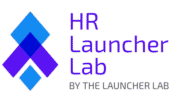Introduction: The $50K AI Vendor Mistake Every HR Leader Should Avoid #
The founder of a 40-person digital marketing agency thought she’d found the perfect solution to her hiring problems. The AI recruiting tool vendor promised to “eliminate unconscious bias completely” and “reduce time-to-hire by 90% using advanced machine learning algorithms.”
The demo was flawless. The salesperson was convincing. The ROI projections looked incredible.
Six months and $25,000 later, the team had abandoned the tool entirely. The AI screening system had filtered out qualified candidates, created potential EEOC compliance issues, and required expensive custom integrations that doubled the total cost. Worse yet, she was locked into a two-year contract with substantial early termination penalties.
Her mistake? She missed the red flags that predicted this outcome.
Recent industry research shows that 73% of small and medium businesses report significant challenges with their AI HR tool purchases, with the average failed implementation costing between $15,000-$75,000 in direct costs and lost productivity.
This comprehensive guide reveals the 11 most dangerous red flags when evaluating AI HR vendors, helping you avoid expensive mistakes and choose tools that actually deliver value for your organization.
- Introduction: The $50K AI Vendor Mistake Every HR Leader Should Avoid
- Why AI HR Vendor Red Flags Are More Dangerous for SMBs
- Category 1: Immediate Deal-Breakers (Walk Away Now)
- Category 2: Data Security and Privacy Red Flags
- Conclusion: How to Avoid Expensive AI Vendor Mistakes
- Read More: Artificial Intelligence
Read More: Artificial Intelligence #
Is Your HR Tech Stack AI-Ready? Build the Right Infrastructure #
Why Process Standardization Matters for Scaling Teams: A Practical Guide #
Get AI-Ready: How to Fix HR Data Hygiene #
Is Your Company Culturally Ready for AI? How to Prepare Your Team #
Practical AI in HR: 20 Use Cases with Prompts #
Chatbots vs. AI Agents in HR: Real Use Cases, Tools, and How to Choose #
Choosing AI HR Vendors: A Step-by-Step Guide #
AI in HR for Small Teams: A Practical Guide by Company Stage #
How to Pilot Test an AI HR Tool Without IT Staff: A Step-by-Step SMB Guide #
Disclaimer #
The information on this site is meant for general informational purposes only and should not be considered legal advice. Employment laws and requirements differ by location and industry, so it’s essential to consult a licensed attorney to ensure your business complies with relevant regulations. No visitor should take or avoid action based solely on the content provided here. Always seek legal advice specific to your situation. While we strive to keep our information up to date, we make no guarantees about its accuracy or completeness.
This content may contain affiliate links, meaning we receive a commission if you decide to make a purchase through our links, at no cost to you.
For more details, refer to our Terms and Conditions.
